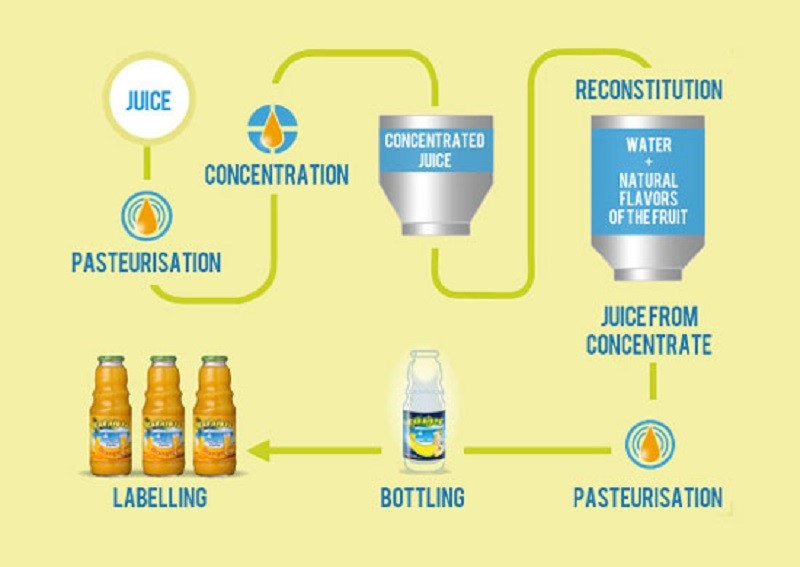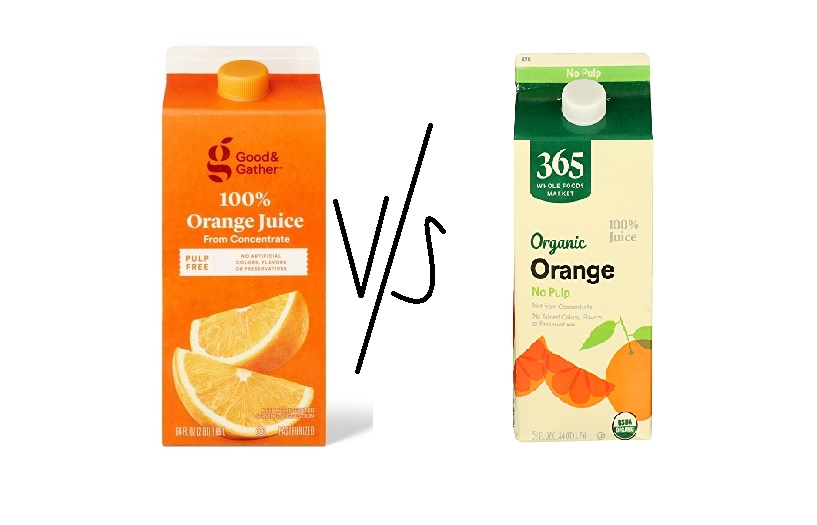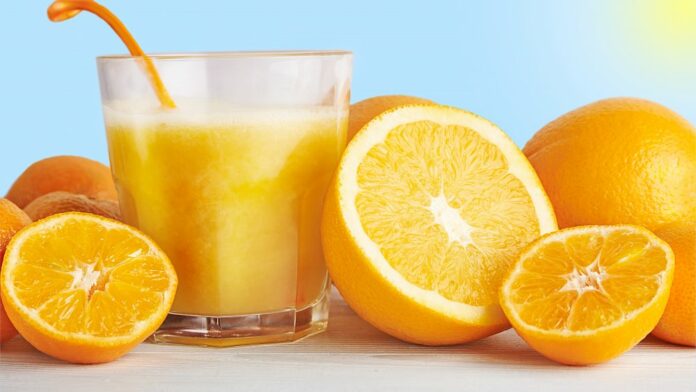Q: What does from concentrate mean? What does “not from concentrate mean”?
ANS: “From concentrate” and “not from concentrate” indicates how juice or coconut water was processed. These are the recommended guidelines by the Food and Drug Administration (FDA).
From Concentrate AND Not From Concentrate: Definition

“100% natural juice” and “not from concentrate” are labels often used to describe juice made directly from fresh fruit without any additional ingredients or processing.
This type of juice is made by squeezing it directly from the fruit and packaging it without further treatment. As a result, it is considered to be the freshest-tasting juice available, aside from squeezing the fruit yourself.
To make fruit juice concentrate, the excess water is removed from the fruit using a combination of heat and pressure. This results in a juice approximately seven times more concentrated than the juice obtained by directly squeezing the fruit.
The concentrate is then pasteurized and packaged.
To make juice from concentrate, water must be added back to the concentrate either at the factory (in which case the product would be labeled “made from concentrate”) or at home (if the concentrate was purchased as a separate product).
Concentrates are often sold in frozen, tubular containers in the freezer section of grocery stores.
ALSO READ: Health Benefits of Organic Apple Juice? Is Apple Juice Good For You
Difference Between ‘Concentrate’ AND ‘Not From Concentrate

“Concentrate” and “not from concentrate” refer to the way that fruit juice is processed and packaged.
Juice concentrate is made by removing water from fresh juice, which reduces the volume of the juice and makes it easier to store and transport. To make juice from concentrate, the water is typically added to the juice before it is sold.
“Not from concentrate” juice, on the other hand, is made from fresh fruit bottled or packaged without being concentrated.
Because it is not made from concentrate, it typically has a fresher, more natural taste than juice that is made from concentrate. However, it can also be more expensive and have a shorter shelf life than juice concentrate.
This helps clarify the difference between these two types of juice!
Is it Mandatory to Write “Concentrate” on The Label?
According to the Food and Drug Administration’s regulations, juices made from concentrate must be labeled with “from concentrate” or “reconstituted” wherever they appear on the label.
The exception to this rule is in the ingredient statement, where the juice can be listed as “concentrated juice and water” or “water and concentrated juice,” depending on the order in which the ingredients are listed. This requirement is outlined in 21 CFR 102.33(g).
If the juice is made from a single type of fruit or vegetable and no other ingredients have been added except for juice concentrate from the same fruit or vegetable, it does not need to be labeled as “from concentrate.”
However, if water is added to this juice to adjust the Brix level, it must be labeled as “from concentrate” or “reconstituted.”
Which is Better?
If no additives or preservatives are added to the concentrate, both “not from concentrate” juice and “100% juice from concentrate” are nutritionally similar.
To ensure that you are getting straight juice, look for “not from concentrate” on the label.
To ensure that you are getting juice that has been reconstituted with water, look for “100% juice from concentrate” on the label and check the ingredient list to make sure it only contains juice and water.
If the label on the product says “punch,” “beverage,” or anything other than “100% juice,” it likely contains additives and preservatives.
These additives often include sugar, which can increase the caloric content of the product.
ALSO CHECK: Best Detox Cleanse for Women’s Health and Beauty Routine
Which Juice Has the Longest Shelf Life?
Juices that are “from concentrate” have a longer shelf life because they can be made from concentrate that has been frozen and then reconstituted later.
“Fresh squeezed” juices, which are made by squeezing the juice directly into a container, have the shortest shelf life because they have not undergone any preservation processes.
“Not from concentrate” juices have a slightly longer shelf life because they have been subjected to a flash pasteurization process, killing some bacteria that can cause spoilage.
Juices “from concentrate” have a longer shelf life because they have been fully pasteurized. With all the water removed, the concentrate itself has the longest shelf life.
The juice production process starts with the arrival of fresh fruit at a processing plant. The fruit is washed and sorted, and then the juice is extracted from the peel and pith using a machine.
If the juice is going to be turned into concentrate, it is sent to an evaporator and then to the pasteurizer.
If it is made into “not from concentrate” juice, it is sent directly to the pasteurizer, where high temperatures kill bacteria and deactivate enzymes, extending its shelf life.
If the juice is a premium product, it goes through a flash pasteurization process, which involves a shorter period of time at a lower temperature than full pasteurization.
This preserves some of the taste of the fresh juice, but it only has about half the shelf life of fully pasteurized juice.
Which juice is Less Expensive?
Juices made from concentrate are typically less expensive than those that are not from concentrate because they require less processing and have a longer shelf life.
Which is The Best Choice?
Now that you understand what “from concentrate” means on a juice label, you can decide which type of juice is the best choice for your needs.
If you are using the juice for cooking, it only matters a little which type you choose. However, concentrated juice is the better option if cost and shelf life are important considerations.
If you choose the juice for drinking, there may be a taste difference between “not from concentrate” and “from concentrate” juices.
“Not from concentrate” juice is made from the juice extracted directly from the fruit, so it tastes fresher and more like the actual fruit.
However, the heat of pasteurization can destroy some of the flavor and aroma of the juice, which some people may find less appealing.
With Juices, What Does ‘From Concentrate’ Mean?
ALSO READ: Best Detox Drinks For Weight Loss




